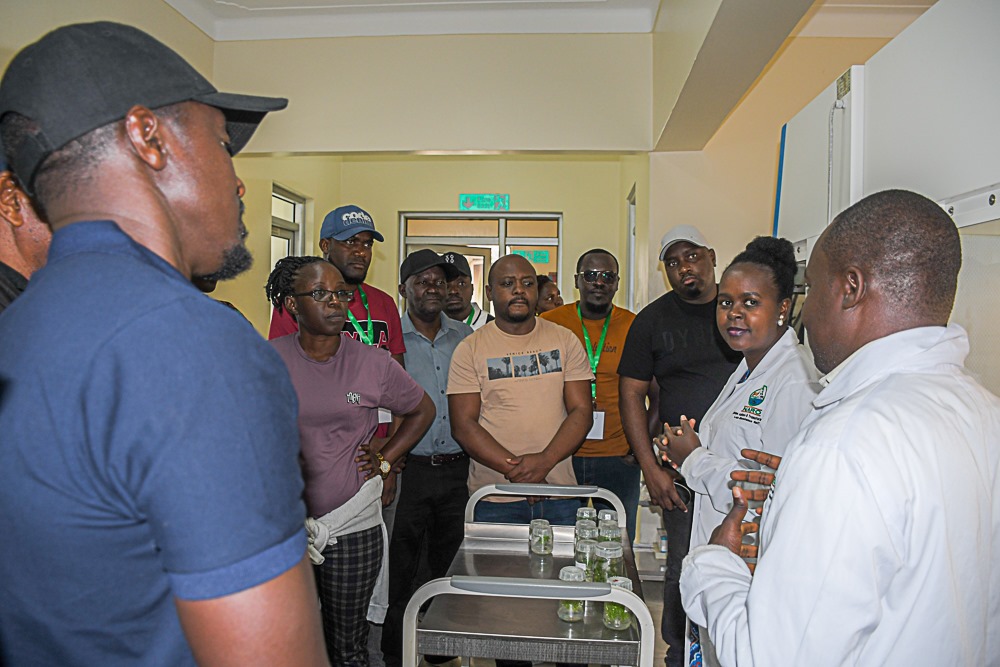Researchers call for partnerships to build as strong seed system
“Seed is the foundation of productivity. Without a strong early-generation seed system, we cannot meet the food security and climate resilience needs of our farmers,” said Yada.
Some experts checking out potato seed vins at NaCRRI. (Courtesy photos)
________________
Seed developers from the National Agriculture Research Organisation (NARO) have called for stronger partnerships to generate quality seed.
The call by the National Resources Research Institute's root crops head, Dr Benard Yada was made while meeting seed experts from other countries.
The experts were in the country to exchange knowledge on best practices in early-generation seed (EGS) production and to explore partnerships for improving seed supply across the continent.
The four-day seed stakeholders learning event, which included field visits to different research stations like NaCRRI in Namulonge, was organised by AGRA’s Centre of Excellence for Seed Systems in Africa (CESSA) and ended on August 8, 2025.
Seed experts in the laboratories.
It brought together participants from Uganda, Kenya, Rwanda, Tanzania, Zambia, Malawi, Mozambique, Zimbabwe, South Africa, and Ethiopia.
Welcoming the delegation, Yada underscored the central role of quality seed in agricultural transformation.
“Seed is the foundation of productivity. Without a strong early-generation seed system, we cannot meet the food security and climate resilience needs of our farmers,” he said.
Participants toured NaCRRI’s biosciences laboratories, root, tuber and banana (RTB) screenhouses and cereal and legume seed fields to observe Uganda’s model for producing and maintaining breeder and foundation seed.
The visit also included a stop at NARO Holdings Ltd, NaCRRI’s commercial arm, which partners with private companies to multiply and distribute certified seed.
According to Chris Muwanika, the General Manager of NARO Holdings, the model has reduced bottlenecks and improved seed availability for private sector multiplication.
“A certain percentage of profit we generate from our commercial seed business goes back into strengthening NARO’s research capacity. From maintaining experimental plots to funding the development of next-generation crop varieties,” Muwanika said.
Dr. Jane Ininda, the Interim Director of CESSA at AGRA, said the visit was aimed at creating an opportunity for countries to learn from Uganda’s public–private partnership approach.
“We have seen how collaboration between research institutions, seed companies, and government agencies can accelerate the delivery of improved, climate-smart varieties to farmers,” she noted.
Technical sessions during the day highlighted maize, bean, and RTB seed delivery models, along with measures to safeguard genetic purity through controlled multiplication, rigorous inspection, and official certification by the Ministry of Agriculture.
The field visit was preceded by discussions earlier in the week on sustainable seed systems, quality assurance, and market-oriented business models.
Insights from the tour are expected to inform policy and investment strategies in participating countries, with the goal of expanding access to affordable, high-quality seed for African farmers.